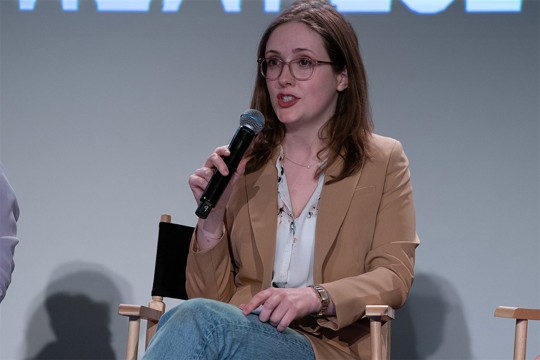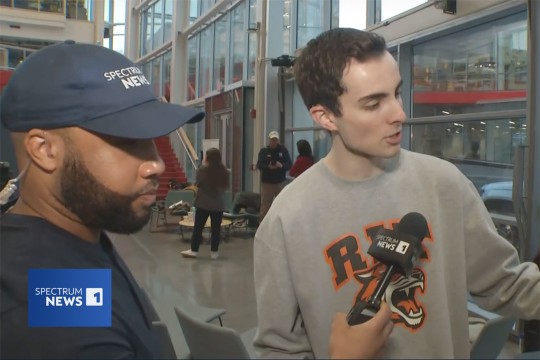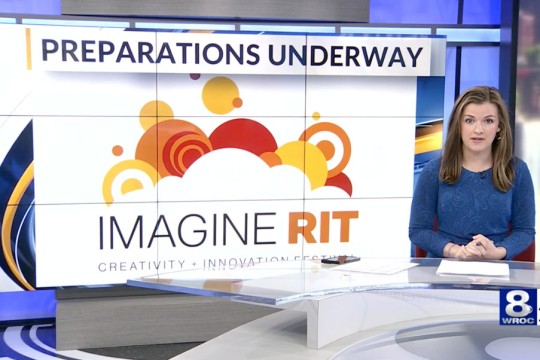Sociologist studies disaster management
Research turned personal as Jessica Pardee witnessed Hurricane Katrina’s aftermath
After witnessing firsthand the devastation of Hurricane Katrina, sociologist Jessica Pardee decided to devote her research to ensuring better outcomes for families who may be involved in future disasters.
Pardee, assistant professor of sociology in the College of Liberal Arts at Rochester Institute of Technology, is dedicated to alerting disaster management officials about the importance of focusing on moving people as family units—rather than individuals. She says such a focus could greatly reduce loss of life and emotional hardship.
As a resident of Louisiana during the 2005 hurricane, Pardee witnessed the effects the storm had on poor African-American women and their abilities to successfully evacuate from disasters as family units versus individuals. Pardee argues that in order for city planners and disaster management professionals to prepare effective emergency plans, the roles of families need to be recognized, maximized and transformed from a liability preventing timely evacuation to an asset.
In her subsequent research, she used census data in combination with existing evacuation data from a study of Hurricane Katrina survivors to measure the effects of family units on evacuation time based on family size, the degree of spatial separation, the role of traveling family caravans and population density of the family’s starting neighborhood—all of which are factors that can make pre-evacuation reunions for families difficult to achieve.
Pardee’s project, started by a $10,000 RIT Strategic Acceleration of Research for Tenure-track faculty grant, furthers discussions to determine how long it takes families to leave a particular area in a hurry and how early cities should issue evacuation orders. According to her findings, humans make decisions in connection with their social obligation, the most important of which is family.
“Emergency evacuation occurs within a social context, despite the risk, danger or impending devastation,” Pardee says.
Ultimately, Pardee hopes to complete a book project on low-income women and their experiences during Hurricane Katrina.
“It’s been seven years since Katrina,” she adds, “and it’s so important to understand what these women and their families experienced during the storm and over the long haul.
“I watched Katrina unfold in front of me,” Pardee says. “That’s the reason my disaster evacuation research means so much to me. I made the conscious decision to take the more difficult path in my research. This was a sense of duty for me, and although this type of work is emotionally draining, I have the ability to prevent loss.”














